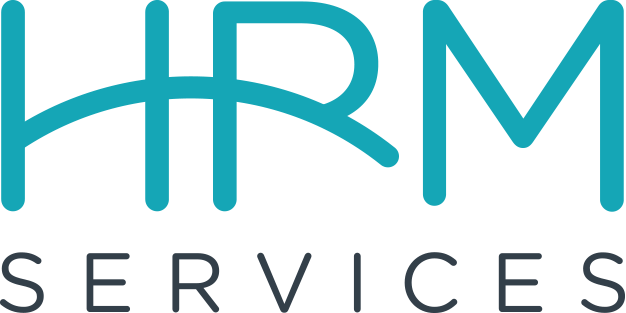
Hello, and welcome to the March edition of HR Hot Topics!
This month, I have a few things I want to talk through with you. One, I just came back from a presentation I did on setting healthy boundaries and emotional professionalism, both of which I thought were important topics for all of you to hear more about. I also want to update you on a few legislative compliance changes, one that is probably going to happen. The other one, it’s a wait and see. And then I want to give you the final survey results because many of you were so kind as to provide us your feedback on the topics that you want to see us do deep dives on.
So first, let’s talk about the topic at hand, which is healthy boundary setting. I think this is incredibly important because many of us are trying to manage personal lives and work lives. And especially if you’re in a situation where you’re working in a hybrid or a remote environment, those two things have blurred in a way they haven’t before.
The boundary setting is something I think all of us, when it comes to our own personal boundaries, we understand the value of them, but when we push up against somebody else’s boundary, it can create some pushback and frustration, both for the individual who feels like you’ve crossed over and asked too much of them, and for the person doing the asking, feeling like perhaps the ask wasn’t that big, right?
So how do you navigate that space? I’m going to link you to a podcast that Brene Brown did on her Dare to Lead. Brene Brown is a wonderful author. She’s done a lot of work in the leadership space and around the topic of shame. But it’s Brene Brown, Adam Grant, and Simon Sinek. So if any of those names sound familiar to you, imagine all three of them jam packed into a conversation together. That’s exactly what this podcast was. In fact, it was so good, they split it into a two-part series. Each of them is like 45 minutes long and it’s free on Spotify, which is amazing, right? So I’m going to connect you with a link to that. But part of what I’m talking about today comes from this back and forth conversation with Brene, Adam, and Simon talking about boundaries.
Often we think of boundaries as a limit or a line that we don’t want someone to cross. What Brene said is that actually healthy boundaries are partially what we don’t want to do, but there’s a whole other component, which is what we will do. So it’s not just what’s out of bounds, but it’s also defining for somebody what is inbounds. And so I love the idea that this is more than just a no, and the nos are easy, but trying to figure out what the yeses are takes a little bit more discernment. And that’s part of emotional professionalism because sometimes as an employer, you are going to require more of a staff member than what they would typically want to give. Maybe you’re asking them to work later than they would typically work. Maybe you’re asking them to forego that vacation request they wanted to put in because you’ve got something coming up and you really need their help with it. Maybe your practice has fallen on hard times and you’re not able to give increases this year. You know, there’s this give and take.
Simon Sinek, who’s part of this conversation on the podcast, he described healthy boundary setting as a negotiation. I love that idea too, that it’s not as rigid as we often consider it to be. You’re deciding whether or not you can make that work, and you might have to stretch this time, right? But then on the back end, if I’m the leader and I’m asking you to stretch and do something outside of the norm, I’m going to recognize that you’ve done that. Then where I can, I’m going to give you leeway somewhere else so there’s a balance, and we both feel like our needs are being met.
That’s where the healthy part of healthy boundary settings comes into play. That it’s really two individuals and it’s a back and forth negotiation. People are a lot more flexible than I think we sometimes know because we just focus on what we won’t do, right? And that’s just not realistic in the workplace. So I love Brene’s idea of what is okay and what is not okay.
And the example she gives is, it’s okay that you are upset in that meeting. It’s not okay to slam your fists on the table because you’re upset, right? So that again, is an example of emotional professionalism, and as leaders, oftentimes, not only do we have to make sure that we are setting examples in this area, but that we have the language to help our employees or those that we’re around and that we support, that they can understand these concepts in a more comprehensive way too.
I’ll leave you with this final bit, which I loved. And this is from Adam Grant. This was his contribution to the piece: He talks about this improv game called ‘should have said’. Basically, it’s a way to give the person a do-over if you don’t like the way the words came out of their mouth. And he said, wouldn’t it be great if that became a norm in our companies that when somebody asks for something and it’s delivered in a way that sets up this sort of paradigm rather than a negotiation, right? When the words don’t come out in a way that sets up that conversation and that negotiation, you as the person on the receiving end could say ‘should have said’ as a way of saying, I get the intent, but I’m going to let you try that again so that the words are better received on this end.
It’s a way of coaching and counseling your team members, right? Sometimes words come out of our mouths, and when we have a minute to think about it, we realize we could have worded something better. So you could ask for a do over, or if the person doesn’t realize they could have said or done that better, you could cue them in just with that phrase ‘should have said’, right?
On this idea of healthy boundaries, I see this more and more, especially with younger workers that don’t have a lot of experience in the workplace but they know how they want work and life to feel. So they are often quick to say, ‘Nope, that’s a boundary for me, hard and fast.’ And because the labor shortage is what it is, employees have a lot of power right now. So those boundaries for an employer might feel like, no, no, no. When really, there needs to be much more wiggle room there, but sometimes it’s the approach and the language we use to try to make sure that we’re giving and receiving in that area. Like I said, I will link to that podcast and some other articles that I think are of interest on this topic.
Now on to the two updates I wanted to share with you. One of them has to do with a current Michigan law. The Elliot Larson Civil Rights Act has been on the books for many years. It’s the state equivalent to the federal civil rights law. There’s a senate bill, Senate Bill Four, to take a federal Supreme Court ruling and a state supreme Court ruling that said, ‘Sex as a protected classification is to include sexual orientation and gender identity, and to codify that in the Elliot Larson Civil Rights Act for our state.’
We already had a federal and a state supreme court ruling that said, this is the law of the land, and this is how you’re supposed to interpret sex. But there’s a push to make sure that language is just very clearly defined in our state statute. That senate bill passed in early March. It now goes to the house where it is expected to pass, as the Dems do have a slight majority in the house. By the way, this was a bipartisan bill, so we expect it to pass in the house, and the governor’s already signaled her support for it. So you will probably see that coming.
The second thing I wanted to just put on your radar, for those of you that use non-competes within your place of business at the federal level, the Federal Trade Commission is proposing a rule that would ban all non-competes for all employers, all independent contractors, and rescind any existing non-competes that may be in effect. This could also impact collective bargaining agreements. The FTC might make slight changes to the proposed language, and then it would become a final rule. And then of course, it would be up to the courts to decide whether or not the rule is enforceable. So it’s not a done deal yet, but if you’re using non-competes, I wanted to put this on your radar. You should be following this pretty closely.
Finally, survey results! Thank you to all of you who took a few minutes to tell us which topics you want to hear more about. I can tell you that the top vote getters were workplace culture, employee engagement, team building, managing different generations in the workforce, and employee evaluations and feedback. So we will work this year to make sure that we hit on those topics.
The first one we’re covering is unfortunately the result of the shooting that happened at Michigan State University last month. And just another example of the ongoing difficulties in our world and how that trauma and that emotional toll affects us personally and professionally. We don’t leave our humanity at home when we go to work. And as an employer, as a leader within an organization, you’re dealing with your own responses to tragedies like that, like covid or the loss of a loved one, right? There are many things happening in our world that have emotional baggage for all of us. But as a leader, you’re trying to manage your own emotional well-being as well as trying to figure out how to be there for your employees – where is the line and what are the tools needed to navigate times like these.
So in light of MSU and some specific questions I had coming from clients, our first deep dive video is going to be on trauma – managing trauma in the workplace. I have some really fantastic guests lined up, one of which is an expert in this field. I can’t wait to have this conversation. It’s just so needed. I think for all of you who are dealing with this, it will feel like a breath of fresh air, something you can actually tangibly hold onto and start to make some inroads in a really difficult time, something that nobody’s really equipped to do in the workplace. At least that’s our goal!
If you’re not on the mailing list, you’ll want to join so that you get access to that. Again, these are free! Thank you for the feedback – we appreciate it. Stay tuned to learn more from us, and as always, if you have any questions, you can reach me at jodischafer@workwithhrm.com. See you next month!

